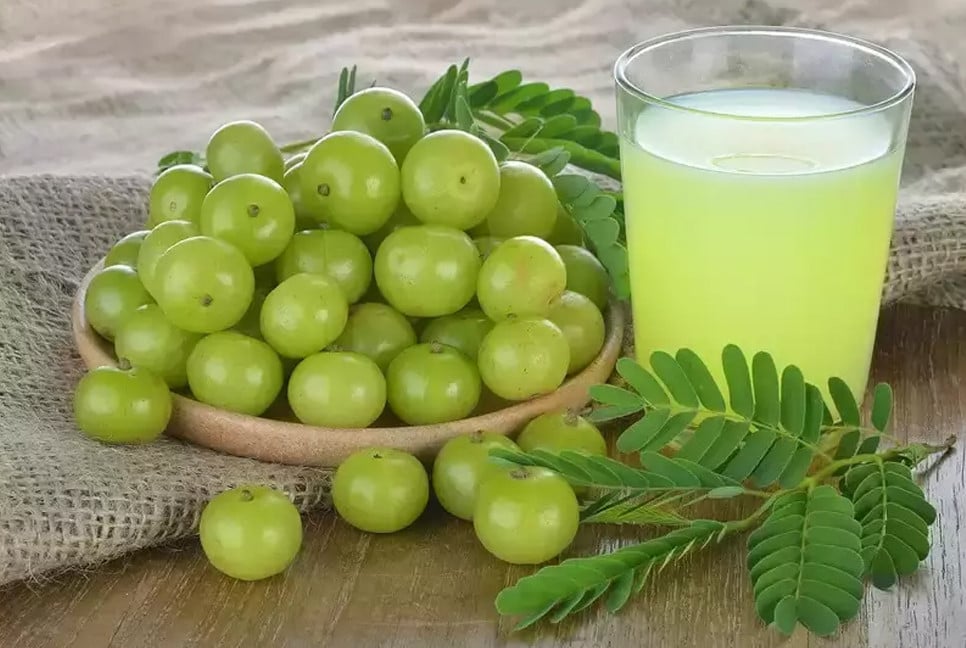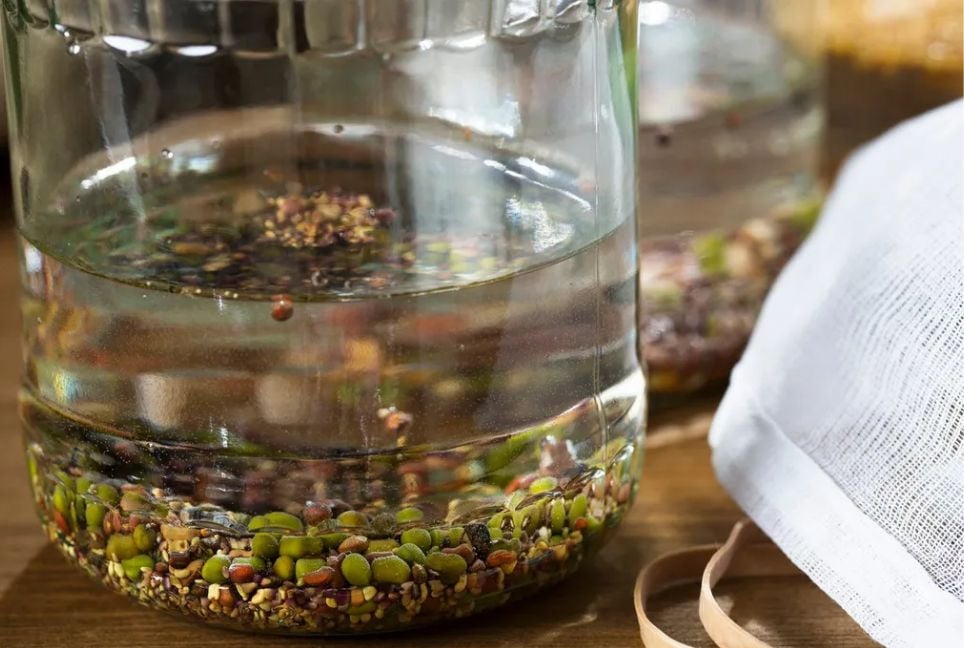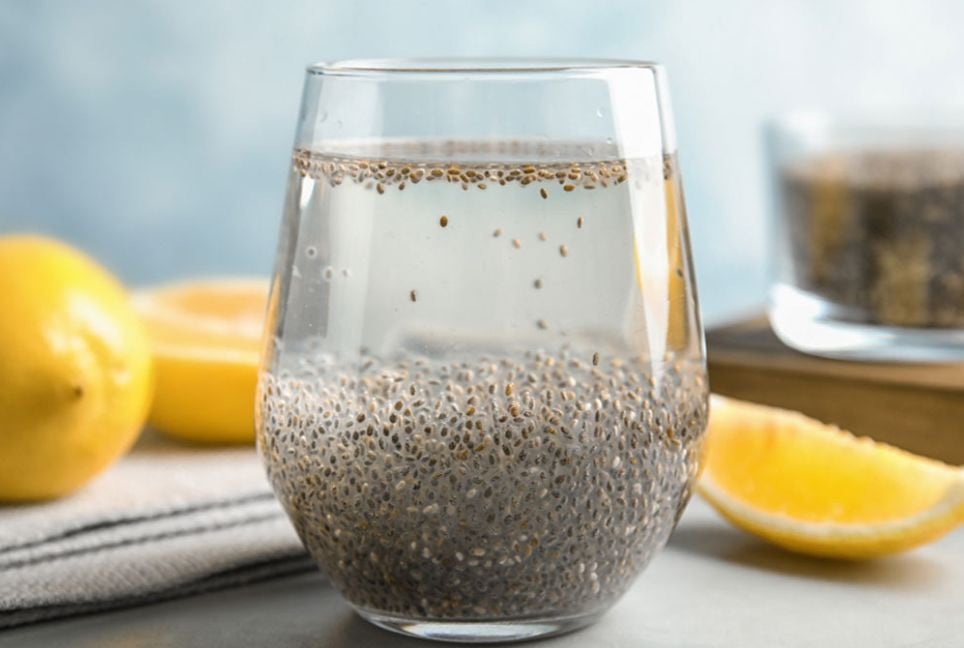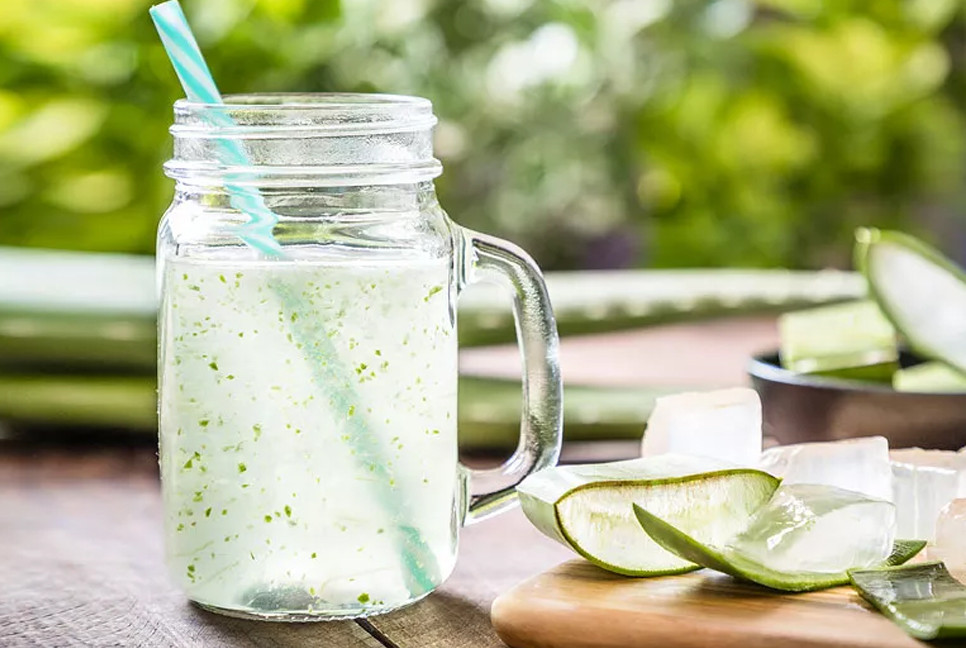Amla, also called amloky or gooseberry is an Asian tree known for its small, green fruits with a distinctive sour, bitter, and astringent taste.
The fruit is commonly eaten pickled or candied, and is also available as a powdered supplement or juice for a quick nutritional boost.
Amla juice is not only flavorful and versatile but also packed with nutrients and linked to several health benefits.
Here are 6 of the top benefits of amla juice, reports healthline.com.
1. Promotes immune function
Amla juice is an excellent source of vitamin C, a potent antioxidant. It contains 600-700 mg of vitamin C per fruit, which helps protect cells from oxidative stress and boosts immune function. Studies suggest vitamin C may help prevent infections and reduce cold duration.
An animal study also found amla extract protects against oxidative stress and cell damage from arsenic. More research is needed to understand its full impact on human immune health.
2. Enhances liver health
While human research is limited, animal studies suggest amla juice may improve liver function. In rats, amla helped prevent fatty liver disease, reduced body weight and belly fat, and improved liver health. Rich in antioxidants and anti-inflammatory properties, amla juice may support liver health.
3. Supports healthy digestion
Interestingly, some research shows that amla juice could offer several benefits for digestive health.
For example, one study including 68 people with gastroesophageal reflux disease (GERD) showed that taking two 500-mg tablets of amla extract twice daily for 4 weeks led to significant reductions in the severity and frequency of heartburn and regurgitation.
Another 2011 animal study found that amla fruit has antidiarrheal properties and may prevent muscle spasms, which could help treat stomach cramps and discomfort.
Several older animal studies also show that amla extract may help heal and prevent stomach ulcers, which may be due to its antioxidant content.
Further studies are needed to evaluate whether amla juice specifically affects digestive health in humans.
4. Promotes heart health
Multiple studies suggest that amla juice may improve several aspects of heart health.
In one study, consuming 500 mg of amla extract twice daily for 12 weeks reduced triglyceride, total cholesterol, and LDL (bad) cholesterol levels in 98 people with abnormal blood lipid levels (16Trusted Source).
What’s more, those who consumed amla extract experienced a 39% reduction in the atherogenic index of the plasma compared with a control group. The atherogenic index is used to measure the risk of excess cholesterol buildup in the arteries (16Trusted Source).
Another small study found that supplementing with amla extract for 12 weeks improved several risk factors for heart disease in 15 adults with overweight or obesity, leading to a reduction in cholesterol levels and inflammation.
Plus, some studies have shown that amla extract may decrease blood pressure, which is another key risk factor for heart disease.
However, keep in mind that these studies evaluate the effects of highly concentrated amla extract doses rather than amla juice itself. Therefore, more studies should be conducted to determine whether amla juice offers similar benefits for heart health.
5. May increase hair growth
Amla is often used to stimulate hair growth and protect against hair loss.
In one study in 42 people with hair loss, applying a serum comprising amla and other ingredients like coconut water and selenium to the hair daily for 90 days led to significant improvements in hair growth and density (21Trusted Source).
Another older study found that amla blocked a specific enzyme involved in hair loss (22Trusted Source).
According to one test-tube study, amla extract could stimulate hair growth by promoting the proliferation of specific cells in hair follicles.
While it’s unclear whether drinking amla juice may also help boost hair growth, it contains several nutrients that may be beneficial, including antioxidants and vitamin C (24Trusted Source).
6. Improves kidney health
Likely due to amla juice’s antioxidant content, research shows that it may support kidney health.
For instance, one animal study showed that administering amla extract to rats helped protect against kidney damage and preserve kidney function (25Trusted Source).
Similarly, another older animal study showed that amla extract helped prevent age-related kidney dysfunction by reducing oxidative stress (26Trusted Source).
Furthermore, one animal study found that amla extract helped normalize kidney function and increase antioxidant status in rats given a medication to induce kidney toxicity (27Trusted Source).
Additional studies are required to determine how drinking amla juice in normal food amounts may affect human kidney function.
How to make amla juice
Amla juice is easy to make at home and requires just a few simple ingredients.
To get started, chop up 2–4 amloky and add them to a blender, along with 1–2 cups (250–500 mL) of water.
You can also mix in other ingredients, such as ginger, black pepper, honey, or sea salt.
Next, blend all ingredients thoroughly, use a strainer to filter the liquid and remove any pulp, and serve.
For best results, be sure to look for a variety that’s free of added sugar, artificial flavors, and preservatives.
Amla juice is rich in nutrients and offers a range of remarkable health benefits. Research indicates it can support kidney, liver, and heart health, boost immune function and hair growth, and aid in digestion. Additionally, amla juice is tasty and simple to make at home, making it a wonderful complement to a healthy diet.
Bd-pratidin English/ Afia































































